Knee Osteoarthritis
How to submit an article:
- Registered users can submit any published journal article that has a unique DOI (Digital Object Identifier) name or link to Research Hub.
- For example, you can paste the full DOI link:
https://doi.org/10.1109/5.771073or just the DOI name:10.1109/5.771073into the field above and click submit. - The person who is first to submit a valid article to Research Hub will forever be credited for it, and every article submission earns you +6 Research Points.
Related Topics
Published research studies are articles that present the findings of original research that has undergone a peer-review process and has been made publicly available in scholarly journals, books or other media.

Effectiveness of a Cucumber Extract Supplement on Articular Pain in Patients with Knee Osteoarthritis: A Randomized Double-Blind Controlled Clinical Trial
2022 Dec 30 Applied Sciences Pérez-Piñero S, Muñoz-Carrillo JC, Victoria-Montesinos D, García-Muñoz AM, Ávila-Gandía V, López-Román FJ
The study concludes that cucumber extract supplementation leads to a decrease in pain intensity, improvements in physical function, and decreased levels of inflammatory and cartilage degradation biomarkers.
Randomised Controlled Trial Knee Osteoarthritis Cucumber
The effects of antioxidants on knee osteoarthritis: A systematic review and meta-analysis
2022 Dec 19 Frontiers in Nutrition Nejadhosseinian M, Djalalinia S, Haerian H, Alikhani M, Mansour A, Mousavian AH, et al.
Systematic Review Meta-Analysis AntioxidantAntioxidant therapy significantly reduces disease-related symptoms for patients with knee osteoarthritis.

The Effectiveness Comparison of Different Acupuncture-Related Therapies on Knee Osteoarthritis: A Meta-Analysis
2022 Jun 30 Evidence-Based Complementary and Alternative Medicine Ye C, Zhou J, Wang M, Xiao S, Lv A, Wang D
Systematic Review Meta-Analysis AcupunctureAcupuncture and moxibustion therapies have greater therapeutic effectiveness for knee osteoarthritis than sham treatments and generic acupuncture/moxibustion treatments.
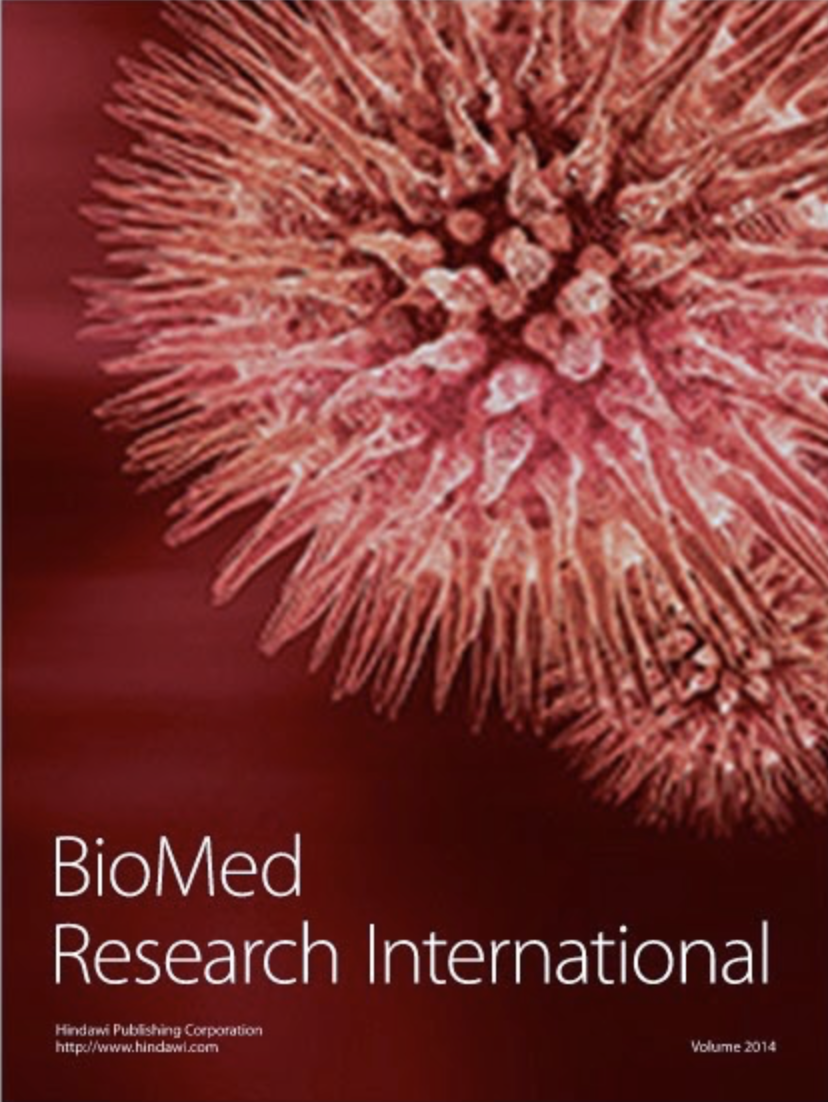
Acupuncture for Knee Osteoarthritis: A Systematic Review of Randomized Clinical Trials with Meta-Analyses and Trial Sequential Analyses
2022 Apr 21 BioMed Research International Tian H, Huang L, Sun M, Xu G, He J, Zhou Z, et al.
Systematic Review Meta-Analysis AcupunctureAcupuncture can reduce pain and improve functional activities in patients with knee osteoarthritis, proving particularly beneficial for chronic sufferers and enhancing their quality of life.
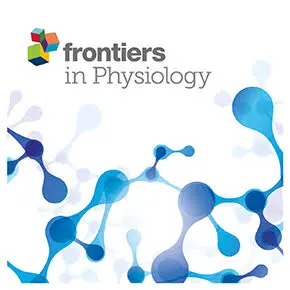
An Overview of Systematic Reviews of Moxibustion for Knee Osteoarthritis
2022 Feb 03 Frontiers in Physiology Yin S, Zhu F, Li Z, Che D, Li L, Feng J, et al.
Systematic Review Knee Osteoarthritis MoxibustionMoxibustion, a form of traditional Chinese medicine, appears to be an effective and safe treatment for knee osteoarthritis.
Research insights are moderated by the Research Hub team and offer an at-a-glance overview of interesting research findings.

2022 Frontiers in Nutrition
Antioxidant therapy significantly reduces disease-related symptoms for patients with knee osteoarthritis.
Systematic Review Antioxidant
The effects of antioxidants on knee osteoarthritis: A systematic review and meta-analysis
Nejadhosseinian M, Djalalinia S, Haerian H, Alikhani M, Mansour A, Mousavian AH, et al.

2022 Evidence-Based Complementary and Alternative Medicine
Acupuncture and moxibustion therapies have greater therapeutic effectiveness for knee osteoarthritis than sham treatments and generic acupuncture/moxibustion treatments.
Systematic Review Acupuncture
The Effectiveness Comparison of Different Acupuncture-Related Therapies on Knee Osteoarthritis: A Meta-Analysis
Ye C, Zhou J, Wang M, Xiao S, Lv A, Wang D

2022 BioMed Research International
Acupuncture can reduce pain and improve functional activities in patients with knee osteoarthritis, proving particularly beneficial for chronic sufferers and enhancing their quality of life.
Systematic Review Acupuncture
Acupuncture for Knee Osteoarthritis: A Systematic Review of Randomized Clinical Trials with Meta-Analyses and Trial Sequential Analyses
Tian H, Huang L, Sun M, Xu G, He J, Zhou Z, et al.

2022 Frontiers in Physiology
Moxibustion, a form of traditional Chinese medicine, appears to be an effective and safe treatment for knee osteoarthritis.
Systematic Review Moxibustion
An Overview of Systematic Reviews of Moxibustion for Knee Osteoarthritis
Yin S, Zhu F, Li Z, Che D, Li L, Feng J, et al.

2021 Complementary Therapies in Medicine
Turmeric curcuminoids are associated with better pain relief than NSAIDs in knee osteoarthritis.
Systematic Review Arthritis Turmeric
The efficacy of high- and low-dose curcumin in knee osteoarthritis: A systematic review and meta-analysis
An-Fang Hsiao, Yi-Chieh Lien, I-Shiang Tzeng, Chien-Ting Liu, Sheng-Hsun Chou, Yi-Shiung Horng
Review Articles
Review articles summarise and critically evaluate the current state of research on a specific topic or field by synthesising multiple primary research studies.

The effects of antioxidants on knee osteoarthritis: A systematic review and meta-analysis
2022 Dec 19 Frontiers in Nutrition Nejadhosseinian M, Djalalinia S, Haerian H, Alikhani M, Mansour A, Mousavian AH, et al.
Systematic Review Meta-Analysis AntioxidantAntioxidant therapy significantly reduces disease-related symptoms for patients with knee osteoarthritis.

The Effectiveness Comparison of Different Acupuncture-Related Therapies on Knee Osteoarthritis: A Meta-Analysis
2022 Jun 30 Evidence-Based Complementary and Alternative Medicine Ye C, Zhou J, Wang M, Xiao S, Lv A, Wang D
Systematic Review Meta-Analysis AcupunctureAcupuncture and moxibustion therapies have greater therapeutic effectiveness for knee osteoarthritis than sham treatments and generic acupuncture/moxibustion treatments.

Acupuncture for Knee Osteoarthritis: A Systematic Review of Randomized Clinical Trials with Meta-Analyses and Trial Sequential Analyses
2022 Apr 21 BioMed Research International Tian H, Huang L, Sun M, Xu G, He J, Zhou Z, et al.
Systematic Review Meta-Analysis AcupunctureAcupuncture can reduce pain and improve functional activities in patients with knee osteoarthritis, proving particularly beneficial for chronic sufferers and enhancing their quality of life.

An Overview of Systematic Reviews of Moxibustion for Knee Osteoarthritis
2022 Feb 03 Frontiers in Physiology Yin S, Zhu F, Li Z, Che D, Li L, Feng J, et al.
Systematic Review Knee Osteoarthritis MoxibustionMoxibustion, a form of traditional Chinese medicine, appears to be an effective and safe treatment for knee osteoarthritis.

The efficacy of high- and low-dose curcumin in knee osteoarthritis: A systematic review and meta-analysis
2021 Dec Complementary Therapies in Medicine An-Fang Hsiao, Yi-Chieh Lien, I-Shiang Tzeng, Chien-Ting Liu, Sheng-Hsun Chou, Yi-Shiung Horng
Systematic Review Meta-Analysis Arthritis TurmericTurmeric curcuminoids are associated with better pain relief than NSAIDs in knee osteoarthritis.
Clinical Trials
Clinical trials are research studies that involve people and are conducted to evaluate the safety and efficacy of new treatments or interventions, such as drugs, medical devices, or behavioural therapies.

Effectiveness of a Cucumber Extract Supplement on Articular Pain in Patients with Knee Osteoarthritis: A Randomized Double-Blind Controlled Clinical Trial
2022 Dec 30 Applied Sciences Pérez-Piñero S, Muñoz-Carrillo JC, Victoria-Montesinos D, García-Muñoz AM, Ávila-Gandía V, López-Román FJ
The study concludes that cucumber extract supplementation leads to a decrease in pain intensity, improvements in physical function, and decreased levels of inflammatory and cartilage degradation biomarkers.
Randomised Controlled Trial Knee Osteoarthritis Cucumber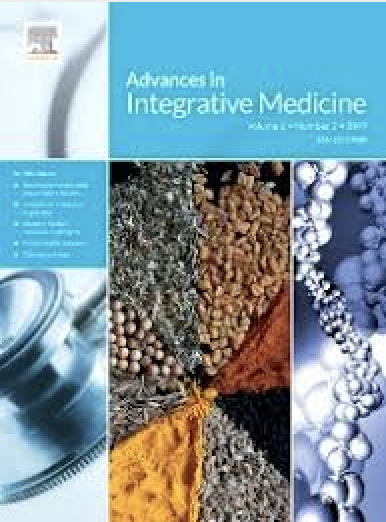
Effects of pomegranate (Punica granatum L.) peel extract supplementation on serum lipid profile and oxidative stress in obese women with knee osteoarthritis: A double blind, randomized, placebo controlled study
2021 May Advances in Integrative Medicine Haghighian MK, Rafraf M, Hemmati S, Haghravan S, Asghari-Jafarabadi M
Randomised Controlled Trial Knee Osteoarthritis Pomegranate PeelPomegranate peel extract supplementation can decrease total cholesterol and triglyceride levels while boosting antioxidant status in obese women with knee osteoarthritis.
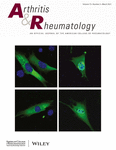
Efficacy of Intensive Acupuncture Versus Sham Acupuncture in Knee Osteoarthritis: A Randomized Controlled Trial
2021 Jan 15 Arthritis & Rheumatology Tu JF, Yang JW, Shi GX, Yu ZS, Li JL, Lin LL, et al.
Randomised Controlled Trial AcupunctureIntensive electroacupuncture appears to reduce pain and improve function in knee osteoarthritis patients more effectively than sham acupuncture.

Electroacupuncture versus manual acupuncture for knee osteoarthritis: a randomized controlled pilot trial
2020 Feb 05 Acupuncture in Medicine Wang TQ, Li YT, Wang LQ, Shi GX, Tu JF, Yang JW, et al.
Randomised Controlled Trial Electroacupuncture Knee Osteoarthritis AcupunctureElectroacupuncture might provide stronger impact on knee osteoarthritis than manual acupuncture, though both methods are safe and feasible treatments.
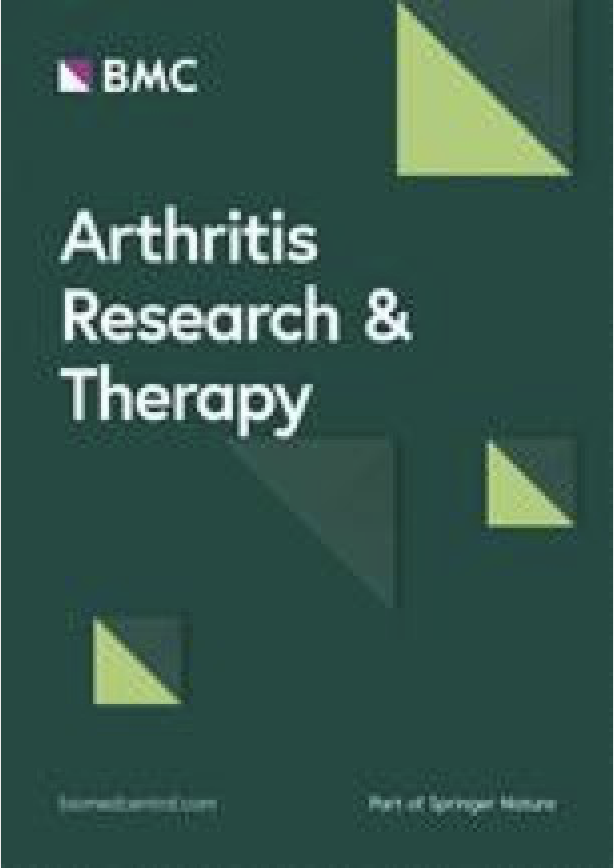
Effects of intensity of electroacupuncture on chronic pain in patients with knee osteoarthritis: a randomized controlled trial
2019 May 14 Arthritis Research & Therapy Lv, Z., Shen, L., Zhu, B. et al.
Randomised Controlled Trial Chronic PainStrong electroacupuncture for at least two weeks improves chronic pain management in knee osteoarthritis patients better than weak or sham electroacupuncture.
Study Protocols
Published study protocols are detailed plans that outline the objectives, methodology, statistical analyses, and organisation of a research study that have been made publicly available for others to review and use as a reference.

Acupuncture combined with traditional Chinese medicine for knee osteoarthritis: A protocol for systematic review and meta-analysis
2022 Dec 16 Medicine Wang Y, Lu Q, Guo H, Sun J, Li X, Guan H, et al.
This meta-analysis further established the efficacy of acupuncture combined with traditional Chinese medicine in the treatment of KOA. This meta-analysis aims to investigate the efficacy of acupuncture combined with traditional Chinese medicine on patients with KOA and provide reliable evidence. To provide more options for clinicians and patients in the treatment of KOA.
Study Protocol Acupuncture Chinese Herbal Medicine Knee Osteoarthritis
Efficacy and safety of Chinese herbal medicine Danggui Sini decoction for knee osteoarthritis: A protocol for systematic review and meta-analysis
2022 Nov 18 Medicine Zhou X, Xiang KM, Li J, Yang G, Wang Y, Xia H, et al.
This study will compare the effects of DGSND and any other different methods on patients with KOA to provide high-quality, evidence-based clinical recommendations. The study provides a trustable clinical foundation for DGSND in the treatment of KOA.
Study Protocol Dang Gui Si Ni Dang Gui Si Ni Decoction Chinese Herbal Medicine
Chinese herbal medicine Xianling Gubao capsule for knee osteoarthritis
2022 Jan 21 Medicine Liu W, Xu D, Qi Q, Li J, Ou L
A high-quality evidence of XLGBC for the treatment of KOA will be generated from the aspects of safety and efficacy. This systematic review will provide evidence to help us confirm the clinical efficacy of XLGBC in the treatment of KOA.
Study Protocol Chinese Herbal Medicine Knee Osteoarthritis Xian Ling Gu Bao Formula
Effectiveness and safety of Tai Chi for chronic pain of knee osteoarthritis
2022 Jan 14 Medicine Guo G, Wu B, Xie S, Xu J, Zhou X, Wu G, et al.
This proposed systematic review and meta-analysis will evaluate the existing evidence on the effectiveness and safety of Tai Chi for KOA patients with CP.
Study Protocol Chronic Pain Knee Osteoarthritis
Comparative efficacy and safety of Chinese herbal medicine for knee osteoarthritis
2021 Jul 23 Medicine Yang L, Wu B, Ma L, Li Z, Xiong H
This study will provide a reliable evidence to assess effectiveness and safety of CHM for knee OA, which may provide guidance for clinical practice.
Study Protocol Chinese Herbal MedicinePresentation Slides

Systematic Review
Antioxidant therapy significantly reduces disease-related symptoms for patients with knee osteoarthritis.
Nejadhosseinian M, Djalalinia S, Haerian H, Alikhani M, Mansour A, Mousavian AH, Mardani-Fard HA, Kasaeian A, Faezi ST

Systematic Review
Acupuncture and moxibustion therapies have greater therapeutic effectiveness for knee osteoarthritis than sham treatments and generic acupuncture/moxibustion treatments.
Ye C, Zhou J, Wang M, Xiao S, Lv A, Wang D

Systematic Review
Acupuncture can reduce pain and improve functional activities in patients with knee osteoarthritis, proving particularly beneficial for chronic sufferers and enhancing their quality of life.
Tian H, Huang L, Sun M, Xu G, He J, Zhou Z, Huang F, Liu Y, Liang F

Systematic Review
Moxibustion, a form of traditional Chinese medicine, appears to be an effective and safe treatment for knee osteoarthritis.
Yin S, Zhu F, Li Z, Che D, Li L, Feng J, Zhang L, Huo Z

Systematic Review
Turmeric curcuminoids are associated with better pain relief than NSAIDs in knee osteoarthritis.
An-Fang Hsiao, Yi-Chieh Lien, I-Shiang Tzeng, Chien-Ting Liu, Sheng-Hsun Chou, Yi-Shiung Horng

Randomised Controlled Trial
Pomegranate peel extract supplementation can decrease total cholesterol and triglyceride levels while boosting antioxidant status in obese women with knee osteoarthritis.
Haghighian MK, Rafraf M, Hemmati S, Haghravan S, Asghari-Jafarabadi M

Randomised Controlled Trial
Intensive electroacupuncture appears to reduce pain and improve function in knee osteoarthritis patients more effectively than sham acupuncture.
Tu JF, Yang JW, Shi GX, Yu ZS, Li JL, Lin LL, Du YZ, Yu XG, Hu H, Liu ZS, Jia CS, Wang LQ, Zhao JJ, Wang J, Wang T, Wang Y, Wang TQ, Zhang N, Zou X, Wang Y, Shao JK, Liu CZ
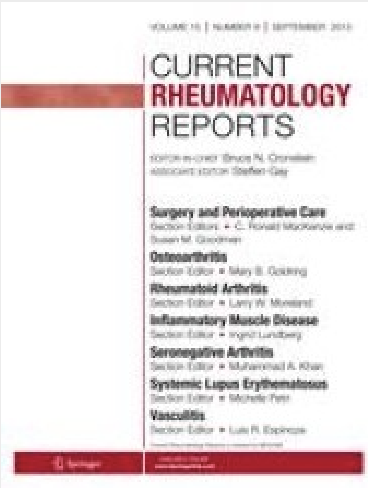
Systematic Review
The majority of studies concluded the superiority of short-term analgesic effects over various controls and suggested that acupuncture may be efficacious for chronic musculoskeletal pain.
Zhang YJ, Wang C
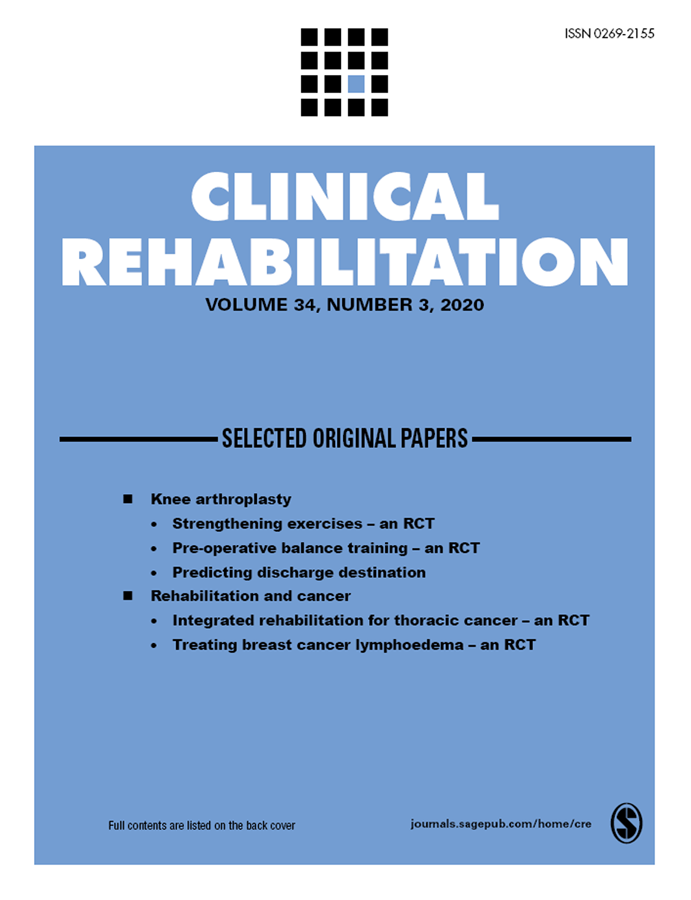
Systematic Review
Tai Chi exercise was beneficial for ameliorating physical and mental health of patients with knee osteoarthritis and should be available as an alternative non-pharmacological therapy in rehabilitation programmes.
Hu L, Wang Y, Liu X, Ji X, Ma Y, Man S, Hu Z, Cheng J, Huang F.
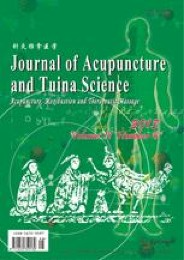
Systematic Review
In the treatment of knee osteoarthritis, the acupuncture group had significant advantages over sham acupuncture or no-acupuncture groups in relieving pain and improving physical function.
Wang, Tt., Liu, Y., Ning, Zy. et al.

Randomised Controlled Trial
Electroacupuncture might provide stronger impact on knee osteoarthritis than manual acupuncture, though both methods are safe and feasible treatments.
Wang TQ, Li YT, Wang LQ, Shi GX, Tu JF, Yang JW, Hou YQ, Lin LL, Sun N, Zhao JJ, Hou HK, Liu CZ
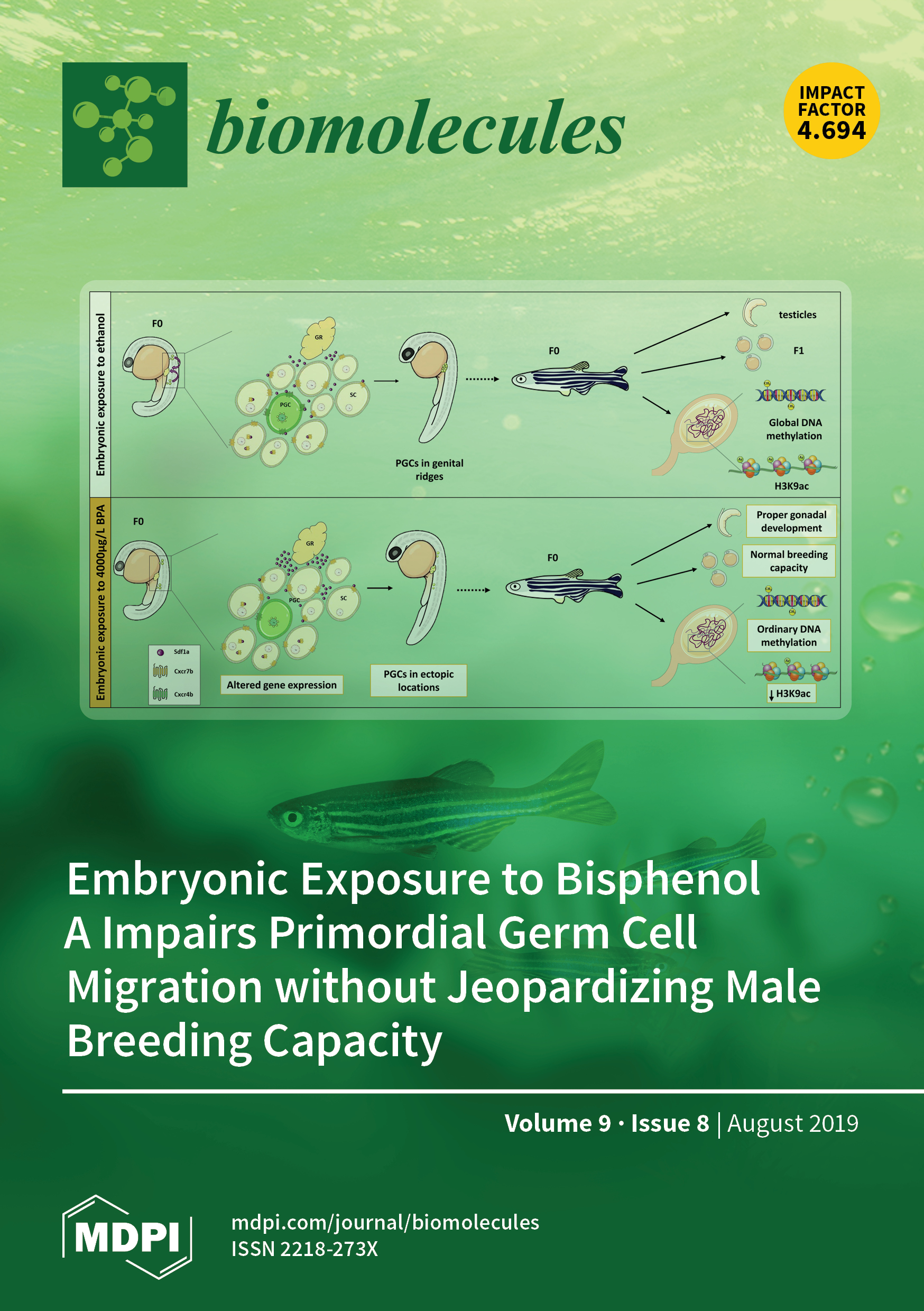
Review Article
Avocado and soybean unsaponifiables may effectively reduce inflammation and symptoms related to osteoarthritis, autoimmune diseases, and menopause.
Salehi B, Rescigno A, Dettori T, Calina D, Docea AO, Singh L, Cebeci F, Özçelik B, Bhia M, Dowlati Beirami A, Sharifi-Rad J, Sharopov F, C. Cho W, Martins N
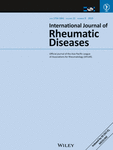
Systematic Review
Avocado-soybean unsaponifiables treatment is effective in reducing knee osteoarthritis symptoms without increasing adverse events, contrary to those with hip osteoarthritis.
Simental‐Mendía M, Sánchez‐García A, Acosta‐Olivo CA, Vilchez‐Cavazos F, Osuna‐Garate J, Peña‐Martínez VM, Simental‐Mendía LE

Systematic Review
According to high-quality outcomes, acupuncture had more total effective rate, short-term effective rate, and less adverse reactions than western medicine in treating knee osteoarthritis.
Li J, Li YX, Luo LJ, Ye J, Zhong DL, Xiao QW, Zheng H, Geng CM, Jin RJ, Liang FR

Randomised Controlled Trial
Strong electroacupuncture for at least two weeks improves chronic pain management in knee osteoarthritis patients better than weak or sham electroacupuncture.
Lv, Z., Shen, L., Zhu, B. et al.
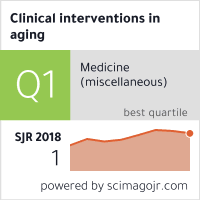
Randomised Controlled Trial
The extract from cucumber, Q-Actin, is effective in reducing moderate knee osteoarthritis related pain and potentially in managing knee pain, stiffness, and physical functions.
Nash RJ, Azantsa BKG, Sharp H, Shanmugham V
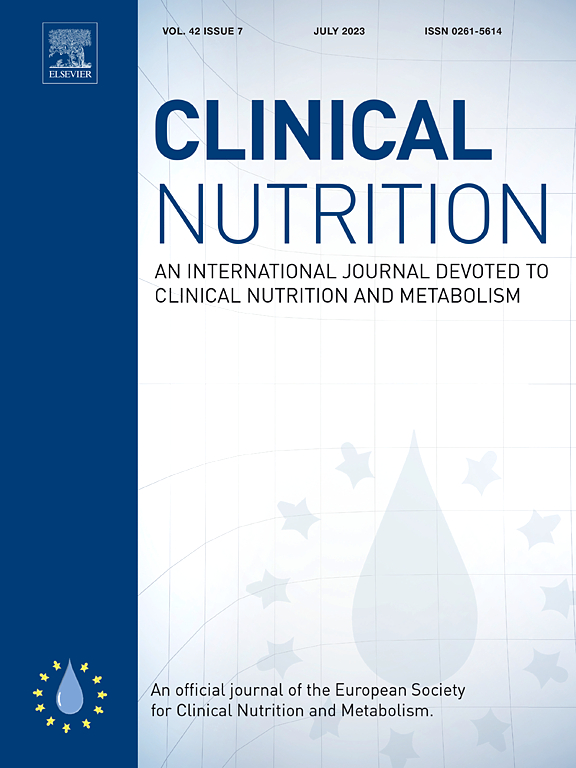
Randomised Controlled Trial
Green tea extract can potentially control pain and improve knee joint physical function in adults suffering from osteoarthritis.
Hashempur MH, Sadrneshin S, Mosavat SH, Ashraf A

Review Article
Traditional Chinese Medicine offers potential benefits like pain relief and functional improvement for knee osteoarthritis with few adverse events.
Yang M, Jiang L, Wang Q, Chen H, Xu G

Clinical Study
Pomegranate juice improves physical function and stiffness, decreases cartilage breakdown enzymes and enhances antioxidant status in patients with knee osteoarthritis.
Ghoochani N, Karandish M, Mowla K, Haghighizadeh MH, Jalali MT
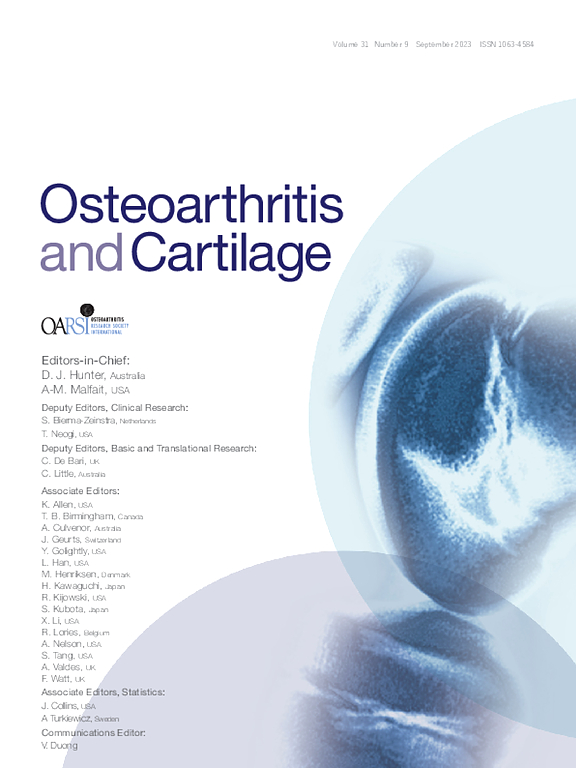
Randomised Controlled Trial
Tart cherry juice potentially helps alleviate symptoms of mild to moderate knee osteoarthritis and decreases the levels of high sensitivity C-reactive protein.
Schumacher HR, Pullman-Mooar S, Gupta SR, Dinnella JE, Kim R, McHugh MP

Randomised Controlled Trial
Tart cherry juice shows promise in easing knee osteoarthritis symptoms.
Schumacher HR, Pullman-Mooar S, Gupta SR, Dinnella JE, Kim R, McHugh MP
Executive Summary
Write an executive summary in the form of a blog article on the topic of "Research into Chinese medicine treatment for Knee Osteoarthritis" summarising the research below and using language that can be easily understood by patients and avoiding medical jargon using a professional and caring tone of voice.
Write an executive summary in the form of a blog article on the topic of "Researched Chinese medicine treatments for Knee Osteoarthritis" summarising the research below in an objective and easy to understand way, and using language that can be easily understood by patients. Group the article into Chinese medicine treatments first, followed by nutrition and other treatments. Avoid using medical jargon and use a professional and caring tone of voice.
Write me a concise but easy to understand executive summary on the topic of "Chinese medicine treatments for Knee Osteoarthritis" based on the following research that I will give you. Your summary should be 2 paragraphs long in Australian English spelling and include references to the studies.
A Systematic Review published in 2022 in the journal Frontiers in Nutrition found that Antioxidant therapy significantly reduces disease-related symptoms for patients with knee osteoarthritis. Methodology: The approach for this systematic review and meta-analysis was based on thorough literature analysis with no time or language restrictions from prominent databases including PubMed, International Scientific Indexing, and Scopus. The search was focused on the connections between "osteoarthritis" and "antioxidants". This study considered pain as the primary outcome while also analyzing the symptoms, functions of knee osteoarthritis, and quality of life. All these variables were measured using the corresponding instrument from existing studies. Only randomized controlled trials with a placebo control or other medical therapeutic interventions were included. Publication bias was evaluated using Begg's funnel plot and Egger's regression test, and results were validated using the trim-and-fill test. Results: From the initial 7,698 papers, information was obtained from 31 selected documents. Results showed that antioxidant therapy significantly affected the symptoms of patients with knee osteoarthritis, as validated using the Visual Analog Scale. However, there was no notable difference observed in the combined score, difficulty score, pain score, and stiffness score as reported by the Western Ontario and McMaster Universities Osteoarthritis Index.
A Systematic Review published in 2022 in the journal Evidence-Based Complementary and Alternative Medicine found that Acupuncture and moxibustion therapies have greater therapeutic effectiveness for knee osteoarthritis than sham treatments and generic acupuncture/moxibustion treatments. The researchers queried PubMed, Embase, and CNKI databases to find qualifying trials conducted between 2017 and 2022. All trials that employed acupuncture or moxibustion for knee osteoarthritis patients were included. The process of choosing studies to be included and extracting relevant data from them was carried out by two researchers independently. The data were analyzed using R 4.1.1. The meta-analysis included seventeen trials. The results of the analysis identified a correlation between several common forms of acupuncture and moxibustion therapies, as observed via a network meta-analysis. The findings showed that treatments involving acupuncture or moxibustion were more effective than sham treatments. Furthermore, when compared with standard acupuncture or moxibustion procedures, specific acupuncture or moxibustion procedures proved to be more effective.
A Systematic Review published in 2022 in the journal BioMed Research International found that Acupuncture can reduce pain and improve functional activities in patients with knee osteoarthritis, proving particularly beneficial for chronic sufferers and enhancing their quality of life. This study amassed randomized controlled trials from various databases including PubMed, Embase, and others to assess the effectiveness of acupuncture in alleviating the symptoms of knee osteoarthritis. The researchers conducted a meta-analysis using the Cochrane systematic review method by integrating Review Manager 5.4 and TSA 0.9.5.10 beta software, in conjunction with the GRADE approach for quality assessment of the evidence. They also implemented a trial sequential analysis to manage random errors and calculate the required information size. The meta-analysis included eleven randomized controlled trials involving 2484 patients. The results indicate a positive effect of acupuncture on reducing pain and enhancing patient functionality. Conversely, stiffness symptoms were not significantly alleviated by acupuncture. Moreover, the analysis demonstrated no substantial difference between the effectiveness of acupuncture and sham procedures in improving the psychological aspects of patients' quality of life. Furthermore, physical health improvement, as measured by SF-36 or SF-12, was not significantly different between groups receiving real or sham acupuncture. The trial sequential analysis graphs showed cumulative Z-curves crossing the traditional statistical level favoring acupuncture, highlighting its potential usefulness. Therefore, acupuncture shows promise as an alternative therapy for patients with knee osteoarthritis.
A Systematic Review published in 2022 in the journal Frontiers in Physiology found that Moxibustion, a form of traditional Chinese medicine, appears to be an effective and safe treatment for knee osteoarthritis. The researchers used a series of databases including Embase, PubMed, Web of Science, Cochrane Library, and others to carry out a comprehensive evaluation of previous systematic reviews on the treatment of knee osteoarthritis with moxibustion. They employed the Measurement Tool to Assess Systematic Reviews 2 to assess the methodological quality, Preferred Reporting Item for Systematic Reviews and Meta-analyses for reporting quality, and ROBIS Tool to evaluate the risk of bias in the systematic reviews. They also assessed the strength of evidence with the Grading of Recommendations Assessment, Development and Evaluation tool and carried out a meta-analysis of the total effectiveness rate. From this process, 10 systematic reviews were selected that had met their criteria. These reviews included the results of 57 randomized controlled trials involving a total of 5,149 participants. However, these reviews were found to have several critical deficiencies, scoring low on the quality scale used. Despite this, moxibustion, and its combination treatment, were shown to improve the total effectiveness rate in knee osteoarthritis. Eight of the reviews had reported adverse events but none were classified as serious in either the moxibustion group or control group.
A Systematic Review published in 2021 in the journal Complementary Therapies in Medicine found that Turmeric curcuminoids are associated with better pain relief than NSAIDs in knee osteoarthritis. The meta-analysis results showed that curcuminoids were significantly more effective than comparators regarding visual analogue scale (VAS) and Western Ontario and McMaster Universities Arthritis Index (WOMAC) pain scores. However, no significant difference in pain relief or AEs between the high-dose (daily dose ≥1000 mg or total dose ≥42 gm) and low-dose (daily dose <1000 mg or total dose <42 gm) curcuminoid treatments was observed. When comparing curcumininoids versus NSAIDs, a significant difference in VAS pain was found. For AE analysis, three of our included studies used NSAIDs as comparators, with all reporting higher AE rates in the NSAID group, though significance was reached in only one study.
A Randomised Controlled Trial published in 2021 in the journal Advances in Integrative Medicine found that Pomegranate peel extract supplementation can decrease total cholesterol and triglyceride levels while boosting antioxidant status in obese women with knee osteoarthritis. The research was a randomized, double-blind placebo-controlled trial involving 66 obese women aged 38 to 60 years old with knee osteoarthritis. These participants were split into two groups, the intervention group and control group, each containing 33 members. The intervention group received pomegranate peel extract capsules (500 mg) twice daily for 8 weeks including standard drug therapy while the control group was given a placebo during the same period. All participants' fasting blood samples, anthropometric measurements, dietary intake data, and physical activity levels were collected both before the start and at the end of the trial. Results analysis showed that pomegranate peel extract supplementation brought down levels of serum total cholesterol, triglyceride and an oxidative stress marker while enhancing levels of some antioxidant enzymes and the overall antioxidant capacity when compared to the control group. However, there were no noticeable alterations between the two groups in terms of low-density lipoprotein cholesterol, high-density lipoprotein cholesterol, and body mass index by the end of the experiment.
A Randomised Controlled Trial published in 2021 in the journal Arthritis & Rheumatology found that Intensive electroacupuncture appears to reduce pain and improve function in knee osteoarthritis patients more effectively than sham acupuncture. In this multicenter research, individuals suffering from knee osteoarthritis were randomly selected to receive one of three treatments thrice weekly, over an eight-week period: electroacupuncture, manual acupuncture, or sham acupuncture. A double-blind model was enforced where participants, outcome assessors, and statisticians remained unaware of the specific treatment group allocations. The primary benchmark of success was the response rate, which gauged the ratio of participants who noted a minimum clinically important improvement in both pain and function by the eighth week. In the study involving 480 participants, 442 were evaluated for the effectiveness of treatment. The response rates varied among the groups at week 8: with electroacupuncture and manual acupuncture groups reporting higher rates of improvement compared to the sham acupuncture group. On continued assessment at weeks 16 and 26, these higher response rates were sustained in both the electroacupuncture and manual acupuncture groups. Among the patients, those who received intensive electroacupuncture reported less pain and better function at week 8 compared to those who received sham acupuncture, and these effects persisted through week 26. Whereas, intensive manual acupuncture did not show any significant benefits at week 8 but showed improvement in the follow-up period.
A Systematic Review published in 2020 in the journal Current Rheumatology Reports found that The majority of studies concluded the superiority of short-term analgesic effects over various controls and suggested that acupuncture may be efficacious for chronic musculoskeletal pain. We examined 16 review articles and 11 randomized controlled trials published in the last 5 years on the clinical efficacy of acupuncture in adults with CMP conditions. The available evidence suggests that acupuncture does have short-term pain relief benefits for patients with symptomatic knee osteoarthritis and chronic low back pain and is a safe and reasonable referral option. Acupuncture may also have a beneficial role for fibromyalgia. However, the available evidence does not support the use of acupuncture for treating hip osteoarthritis and rheumatoid arthritis.
A Systematic Review published in 2020 in the journal Clinical Rehabilitation found that Tai Chi exercise was beneficial for ameliorating physical and mental health of patients with knee osteoarthritis and should be available as an alternative non-pharmacological therapy in rehabilitation programmes. A total of 16 RCTs involving 986 patients with knee osteoarthritis met the established inclusion criteria. The strength of evidence for the main outcomes was low or moderate. The systematic review illustrated the efficacy of Tai Chi exercise in treating and managing knee osteoarthritis. Patients’ outcomes practising Tai Chi exercise were improved significantly, including pain, stiffness, physical function, dynamic balance, physiological and psychological health. No adverse events associated with Tai Chi exercise were reported.
A Systematic Review published in 2020 in the journal Journal of Acupuncture and Tuina Science found that In the treatment of knee osteoarthritis, the acupuncture group had significant advantages over sham acupuncture or no-acupuncture groups in relieving pain and improving physical function. Eight databases were extensively searched up to March 2018. Randomized controlled trials (RCTs) comparing the efficacy of acupuncture with sham acupuncture or no acupuncture for knee osteoarthritis were included. The Cochrane Collaboration’s tool was used for assessing the risk of bias. A total of 18 RCTs were included, involving a total of 3 522 participants. The results showed that acupuncture was superior to sham acupuncture in relieving pain and improving physical function. In comparison to the no-acupuncture group, the acupuncture group also showed significant advantages in relieving pain and improving physical function. Sensitivity analyses suggested that the results were robust, and Egger’s test found no potential publication bias.
A Randomised Controlled Trial published in 2020 in the journal Acupuncture in Medicine found that Electroacupuncture might provide stronger impact on knee osteoarthritis than manual acupuncture, though both methods are safe and feasible treatments. The study consisted of a multicenter randomized controlled clinical trial conducted in Beijing, during which 60 participants suffering from knee osteoarthritis were split into two groups: Electroacupuncture and Manual Acupuncture. Participants in both groups were treated at the same local traditional acupuncture points, with the Electroacupuncture group using an electrical apparatus. The Manual Acupuncture group experienced a sham procedure, utilizing a working power indicator but no actual current, to keep the participants blind to the experimental conditions. Over 8 weeks, both groups received 24 treatment sessions. The successfulness of the treatments was determined by response rates, pain, stiffness, functionality, and quality of life. In the results, 53 out of 60 participants completed the study. Within these participants, the response rates were 43% for the Electroacupuncture group and 30% for the Manual Acupuncture group. Differences between group outcomes were noted but not deemed statistically significant. There were low rates of adverse effects in correspondence with the two methods, which were also evenly distributed across the two groups.
A Review Article published in 2020 in the journal Biomolecules found that Avocado and soybean unsaponifiables may effectively reduce inflammation and symptoms related to osteoarthritis, autoimmune diseases, and menopause. The research involves summarizing various studies on the biological effects of the avocado-soybean unsaponifiables (ASU), highlighting its potent anti-inflammatory properties. The extracted ASU are a combination of elements derived from the fruits and seeds of avocados and soybeans. To understand its impact, the researchers categorized the applications of ASU in treating different conditions such as osteoarthritic pain, hip and knee osteoarthritis, autoimmune diseases, and menopause-related symptoms amongst postmenopausal women. The discussion revealed significant links between avocado and soybean unsaponifiables and symptom improvement in areas of osteoarthritic pain, autoimmune conditions, and postmenopause. Particularly notable is the ASU mixture's potential role as an adjunct treatment, meaning it’s meant to supplement primary treatments for such conditions. Its benefits were not only limited to physical reduction of inflammation and associated pain, but also improved mood and quality of life for postmenopausal women by significantly reducing menopause-related symptoms. The study also delves into the safety, toxicological considerations, and regulatory practices related to the use of ASU.
A Systematic Review published in 2019 in the journal International Journal of Rheumatic Diseases found that Avocado-soybean unsaponifiables treatment is effective in reducing knee osteoarthritis symptoms without increasing adverse events, contrary to those with hip osteoarthritis. To assess avocado-soybean unsaponifiables (ASU) effectiveness and safety, a systematic review and meta-analysis of randomized controlled trials involving patients with hip or knee osteoarthritis was conducted. Various scientific databases, including Medline, SCOPUS, Web of Science, and Google Scholar, were thoroughly searched for suitable trials. Selection criteria consisted of randomized placebo-controlled trials wherein the effect of orally administered ASU on knee or hip osteoarthritis symptoms were evaluated, primarily using the Lequesne index, visual analog scale, and joint space width. The meta-analysis revealed a significant reduction in pain as assessed by the visual analog scale for those under Avocado-soybean unsaponifiables therapy, particularly for patients with knee osteoarthritis, indicated by a decrease in both the visual analogue scale and Lequesne index. However, no such significant effect was found for patients with hip osteoarthritis. In terms of safety, there were no significant differences in adverse events between patients receiving ASU and those given a placebo, confirming ASU's relative safety as a treatment option.
A Systematic Review published in 2019 in the journal Medicine found that According to high-quality outcomes, acupuncture had more total effective rate, short-term effective rate, and less adverse reactions than western medicine in treating knee osteoarthritis. Firstly, this overview provides the latest evidence on acupuncture for knee osteoarthritis based on the findings of systematic reviews, which indicated that acupuncture may have more total effective rate, short-term effective rate, and less adverse reactions in treating knee osteoarthritis than western medicine. Secondly, this overview is predesigned, which helps restrict the likelihood of biased decisions in reviewing. Thirdly, comprehensive search strategies were conducted for a wide range of data. Fourthly, independent reviewers were engaged in searching, screening, and assessing the potential studies and there was a high consistency among the reviewers.
A Randomised Controlled Trial published in 2019 in the journal Arthritis Research & Therapy found that Strong electroacupuncture for at least two weeks improves chronic pain management in knee osteoarthritis patients better than weak or sham electroacupuncture. In this investigation, a multicenter, three-arm parallel, single-blind randomized controlled trial was conducted in which 301 patients suffering from knee osteoarthritis were randomly divided into three groups based on the electroacupuncture current intensity: strong, weak, and sham. Treatments were carried out in five sessions per week over a two-week period. The impact of these treatments was primarily measured by assessing the Visual Analog Scale, conditioned pain modulation function, and the Western Ontario and McMaster Universities Osteoarthritis Index. After a week of electroacupuncture, a clinically significant improvement was observed in Visual Analog Scale scores and Western Ontario and McMaster Universities Osteoarthritis Index scores, but not in conditioned pain modulation function. However, after two weeks of treatment, improvements were seen in all three primary outcomes when compared to baseline. In terms of enhancing conditioned pain modulation function specifically, both weak and strong electroacupuncture outperformed the sham option, with strong electroacupuncture showing superiority to weak, and resulted in better pain management.
A Randomised Controlled Trial published in 2018 in the journal Clinical Interventions in Aging found that The extract from cucumber, Q-Actin, is effective in reducing moderate knee osteoarthritis related pain and potentially in managing knee pain, stiffness, and physical functions. In this double-blind, parallel-group clinical trial conducted in three different centres, 122 patients aged between 40 and 75 years with diagnosed moderate knee Osteoarthritis were randomly divided into two groups. Over a 180-day period, one group received the cosmetically prescribed dose of 1,350 mg of glucosamine-chondroitin orally twice daily, and the other group took an orally administered 10 mg of Q-Actin (aqueous extract of cucumber) twice per day. The results showed a significant decrease in Osteoarthritis Index scores in the group that received the cucumber extract, indicating reduced pain and improved physical function. This trend was observed throughout the trial, and by the 180th day, the extract's effectiveness was substantially higher than that of the traditionally prescribed glucosamine-chondroitin. Notably, no adverse effects from the cucumber extract were reported during the trial period.
A Randomised Controlled Trial published in 2018 in the journal Clinical Nutrition found that Green tea extract can potentially control pain and improve knee joint physical function in adults suffering from osteoarthritis. The study employed a randomized open-label active-controlled clinical trial in which fifty adults with knee osteoarthritis were randomly divided into two groups. One group received the green tea extract in tablet form along with diclofenac tablet, referred to as the "intervention group," while the other, the "control group," received only the diclofenac tablet. This trial period lasted four weeks. The researchers evaluated the patients at the start of the trial and then four weeks later, measuring the pain score through a visual analogue scale and a specific osteoarthritis questionnaire's score, in addition to its three sub-scores. The participants were also asked to report any side effects experienced during the trial period. The outcomes of the experiment showed that when compared to the control group, the green tea group showed a significant decrease in their pain score and the score measuring knee joint function. However, no differences were observed between the two groups in terms of the specific osteoarthritis questionnaire's pain and stiffness scores. An adverse event of gastric upset was reported in only one patient from the control group.
A Review Article published in 2017 in the journal PLOS One found that Traditional Chinese Medicine offers potential benefits like pain relief and functional improvement for knee osteoarthritis with few adverse events. Five electronic databases were searched up until April 2016 to study the efficacy and safety of Traditional Chinese Medicine (TCM) for treating knee osteoarthritis. The methodological quality of the included studies was evaluated using the Assessment of Multiple Systematic Reviews (AMSTAR) and the Risk of Bias in Systematic reviews (ROBIS) tools. The quality of evidence was determined using the Grading of Recommendations, Assessment, Development and Evaluations (GRADE) approach. The findings indicate that TCM potentially benefits patients with knee osteoarthritis through pain relief, functional improvement, and few adverse effects. However, deficiencies were found in the methodological quality of the reviews, such as the absence of an a-priori protocol or protocol registration, and an incomplete literature search. Furthermore, none of the studies offered a list of excluded studies. Overall, the quality of evidence in the systematic reviews was deemed poor, ranging from 'very low' to 'low'. This shortcoming was primarily due to a substantial risk of bias in the original trials, inconsistencies, and imprecision in the outcomes. Though TCM generally appears to be effective for knee osteoarthritis treatment, the evidence is not strong enough due to methodological flaws. Therefore, these findings should be approached cautiously in a clinical setting.
A Clinical Study published in 2016 in the journal Journal of the Science of Food and Agriculture found that Pomegranate juice improves physical function and stiffness, decreases cartilage breakdown enzymes and enhances antioxidant status in patients with knee osteoarthritis. In the methodology used for this study, the researchers gathered 38 patients diagnosed with knee osteoarthritis. These participants were randomly assigned into one of two groups, a control group and a pomegranate juice (PJ) group. Over a course of six weeks, each group was assessed on their clinical signs, inflammation and antioxidant status so as to understand the impact of pomegranate juice intake on these factors. The results from this study indicated significant improvements in the group that consumed the pomegranate juice, as evidenced by reductions in their total Western Ontario and McMaster Universities Osteoarthritis scores, signifying decreased stiffness and improved physical function. In addition, the serum levels of a specific protein involved in cartilage degradation (matrix metalloproteinase-13) were lowered, whilst the concentrations of an antioxidant enzyme (glutathione peroxidase) rose. This implies that pomegranate juice can potentially lessen the degenerative impact of knee osteoarthritis on joint health and improve overall patients' wellbeing.
A Randomised Controlled Trial published in 2013 in the journal Osteoarthritis and Cartilage found that Tart cherry juice potentially helps alleviate symptoms of mild to moderate knee osteoarthritis and decreases the levels of high sensitivity C-reactive protein. The study involved 58 non-diabetic participants with grade 2-3 osteoarthritis as categorized by Kellgren. Participants were randomly assigned to consume two 8-ounce bottles of either tart cherry juice or a placebo daily for six weeks. There was a one-week washout period before participants switched to the alternate treatment in a crossover design. The research measured participants' Western Ontario McMaster Osteoarthritis Index scores and walking times before and after each treatment. Levels of plasma urate, creatinine, and high sensitivity C-reactive protein were also noted at baseline and after each treatment. Acetaminophen was permitted as a rescue drug with self-reporting after each treatment period. There was a noticeable reduction in Western Ontario McMaster Osteoarthritis Index scores following the cherry juice treatment, an effect not observed with the placebo. High sensitivity C-reactive protein also showed a decrease during the cherry juice treatment. The reduction in high sensitivity C-reactive protein was consistent with the improvement observed in osteoarthritis index scores. However, consumption of tart cherry juice didn't significantly affect walking time, usage of acetaminophen, or plasma urate and creatinine levels.
A Randomised Controlled Trial published in 2013 in the journal Osteoarthritis and Cartilage found that Tart cherry juice shows promise in easing knee osteoarthritis symptoms. This study included 58 patients with knee osteoarthritis (OA) who were given either cherry juice or a placebo. While both groups showed some improvement in WOMAC scores, the cherry juice group experienced a 15% improvement, compared to 6% in the placebo group. However, this difference wasn't statistically significant. The cherry juice group also saw a 23% reduction in hsCRP (an inflammation marker), whereas the placebo group had a 51% increase. This suggests an anti-inflammatory effect of cherry juice. The study notes some limitations, including small sample size and the need for further research. Overall, cherry juice may offer benefits for OA patients.
Moderation Tools
Topic
Sign In
Users not signed in are limited to viewing the 5 most recent items of content.